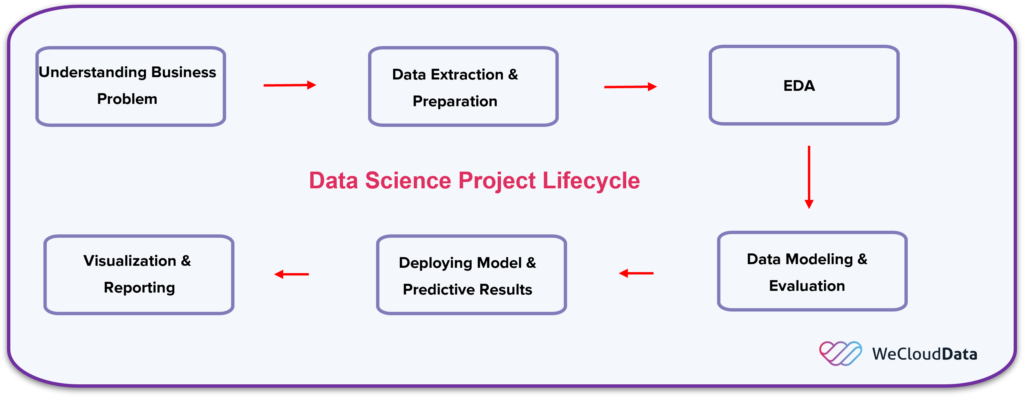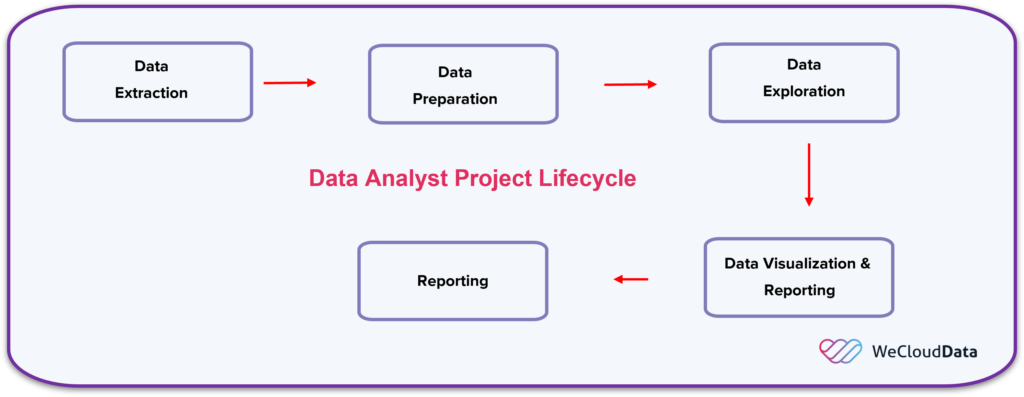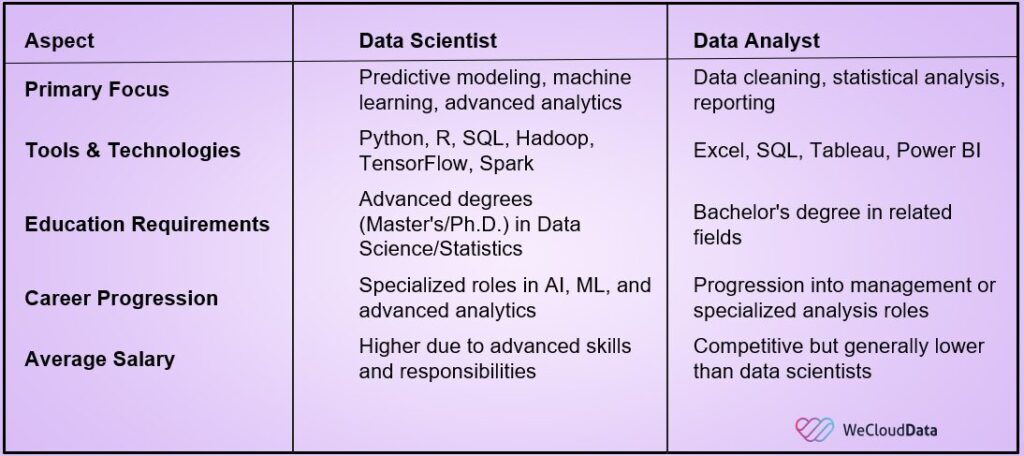Student Blog
The blog is posted by WeCloudData’s student Sneha Mehrin. This Article Outlines the Key Steps in Creating a Highly…
by Student WeCloudData
November 9, 2020
Blog
The world is becoming increasingly reliant on data, about 2.5 quintillion bytes of data are generated every day and that’s a great sign for anyone interested in a data-driven career. There are many career paths related to data including data scientist, data analyst, ML engineer, AI engineer, BI engineer, and many more. This blog focuses on understanding the difference between a data scientist vs data analyst. Both fields have great potential to grow and are highly in demand. Let’s explore these fields with WeCloudData!
In the data world, the best way to define a data scientist is “jack of all trades”. They work on the entire data pipeline with the primary focus on extracting meaningful insights from the data. From data collection and cleaning to data analysis, visualization, building predictive models, and sharing results with stakeholders, a data scientist wears many hats. They use data mining, statistical methods, predictive analytics, and machine learning to get actionable insights from raw data. Data scientists work in industries ranging from sports to healthcare and finance. To learn more about Data Science follow this link.
The role and responsibilities of a Data Scientist are given below;

Skills set for data scientist include:
The data analyst role is more focused on providing insights from data by making reports and visual ads that give meaningful information to stakeholders. The primary goal of a data Analyst is to analyze data to assist organizations in making informed data-driven decisions. While their work is less technical than that of a data scientist, their contributions to business strategy development are highly required.
The role and responsibilities of a Data Analyst are given below;
Data Collection and Cleaning: Data Analyst collects data from multiple sources and cleans it to remove inconsistencies. They mostly use structured data and organize data into usable formats.
Data Exploration and Analysis: Data analysts perform data exploration and analysis to find hidden patterns and insights from data. They do descriptive analytics, and data segmentation and use statistical techniques to identify correlation in data.
Data Visualization: Data analysts are good at data visualization. They present data in the form of graphs and charts that are easy to understand by stakeholders. Data analysts create interactive reports using tools like Tableau, PowerBI, and Excel that allow stakeholders to explore data on their own.
Reporting and Communication: Data analysts act as a bridge between technical teams and business stakeholders by translating data into actionable insights.

Skills set for data Analyst include:

Choosing between a career as a data scientist and a data analyst depends on your interests, skills, and career goals.
Consider pursuing a career in data science if you like coding, machine learning, and solving challenging issues.While a career as a data analyst might be more suitable for you if you enjoy working with data visualization tools and producing reports and are good at communication.
No matter which path you choose, Data Scientist vs Data Analyst WeCloudData offers industry-aligned courses designed to help you master the skills needed for a successful career.
WeCloudData Offers:
Because WeCloudData Offers:
Ready to kickstart your career? Visit our website today and take the first step toward an exciting future in data and AI!
"*" indicates required fields

WeCloudData is the leading data science and AI academy. Our blended learning courses have helped thousands of learners and many enterprises make successful leaps in their data journeys.
"*" indicates required fields
Canada:
180 Bloor St W #1003
Toronto, ON, Canada M5S 2V6
US:
16192 Coastal Hwy
Lewes, DE 19958, USA